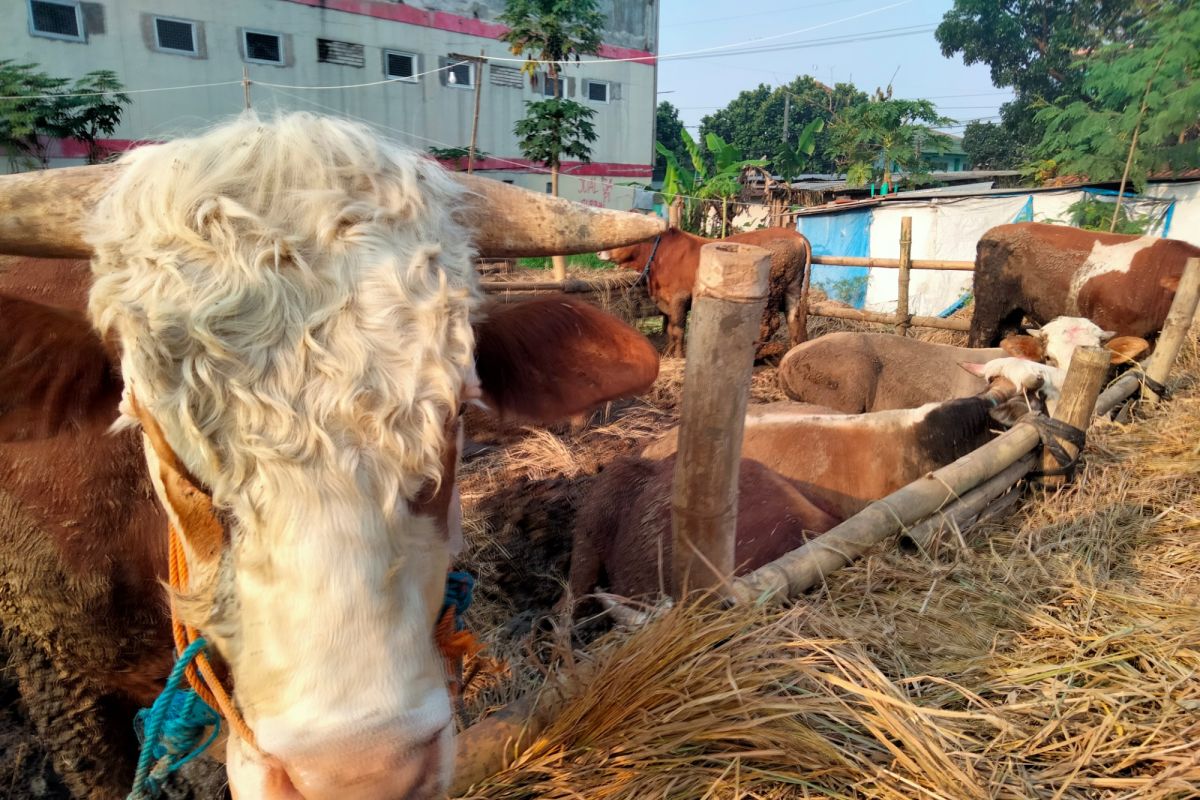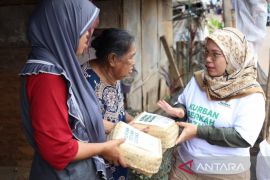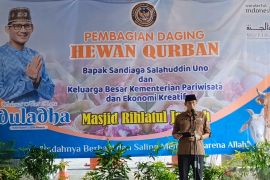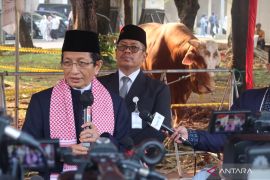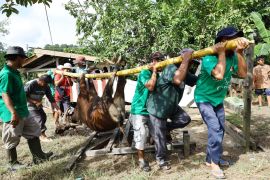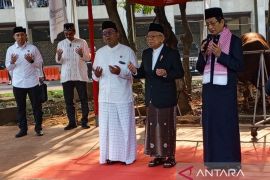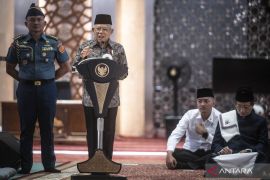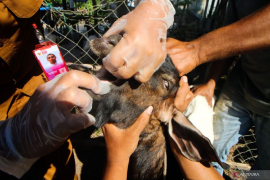Prophet Abraham then woke up, bewildered by what he had seen in his dream. He pondered and sought guidance from Allah SWT. Later on, he again had the same dream that convinced Prophet Abraham that it was indeed Allah SWT's command.
He told his son Ishmael about the dream he saw. After hearing that, Ishmael -- who later became a prophet himself -- calmly and lovingly told his father to fulfill what Allah SWT had bidden him to do.
"He (Ishmael) replied, 'Father, do what (Allah) commanded you to do. If Allah is willing, you will find me among the steadfast'.” (Surah As-Saffat verse 102).
Prophet Abraham was distressed at the thought of slaughtering his own son and was unable to do it, especially since he had been waiting for his son for what felt like forever. Yet Ishmael persuaded his father to willingly go ahead with the slaughter.
Both of them obeyed and did what must be done, but Allah SWT had other plans and did not allow the slaughter to happen. In the middle of it, Ishmael was replaced by a ram, an animal.
Thereafter, qurban became a tradition in Islam, commemorated worldwide every Dhul-Hijjah 10. The event asserted the fact that rationality will be put aside when people submit to and obey Allah SWT. He will compensate the believers with something beyond what they had sacrificed.
"Then We summoned him, 'Abraham, you have done (the command within) the dream'. Indeed we reward people who do good deeds. This is a real trial. We ransomed him with a great sacrifice. We immortalize (praises) for him among the later generations," (Surah As-Saffat verse 104-108).
Qurban, a symbol of humanity
Human sacrifices were a common practice in some ancient civilizations. It was regarded as a method to implore for matters, including to make the gods or deities happy.
The practice can be found among the Aztecs and Mayans in South America as well as in some other tribes. They sacrificed humans, both from their own tribes and the people they enslaved, for their deities.
Islam is present to eradicate inhumane practices. By Allah SWT's grace, He replaced Ishmael with an animal suitable for sacrifice. The act further established the notion that Islam is a religion that upholds human rights.
"We have to (emphasize) an important point that there's a great theological transformation. Prior (to the event), every year, humans had to be sacrificed, and then it was replaced by animals. From human sacrifice to animal sacrifice," Great Imam of Istiqlal Masjid Nassarudin Umar stated.
Qurban is a moment to develop a sense of humanity and be charitable. It also serves as a way to build a noble civilization.
Qurban also means sacrificing things beloved to someone, such as wealth. By doing qurban, Muslims spend their wealth to procure an animal for sacrifice, slaughter it, and share it among the needy.
"If Eid al-Fitr is the duty to give away carbohydrates, Eid al-Adha is a contribution that takes the form of animal protein. It symbolized the totality of our food menu, which contains protein and carbohydrates. The message is the people's completeness, how to create this quality must (entail fulfillment of) protein," Umar added.
Qurban and pandemic
This year marks the second Eid al-Adha observed during the COVID-19 pandemic. Restrictions are in place for every activity, including the Eid prayer and qurban, in order to suppress the spread of COVID-19.
The Ministry of Religious Affairs’ Circular Letter details some guidelines to safely and securely celebrate Eid al-Adha. The government does not prohibit Muslims from performing the Eid prayer or doing qurban, but the implementation must adhere to the rules laid out for the sake of everyone's safety.
Despite the restriction in activities, the affluent do come up with ways to do qurban, including through online qurban.
Online qurban allows the people to fulfill their religious duty. Unlike the online marketplace, it does not deliver the sacrificial animal directly to your home. Instead, all you need to do is pay for the animal, and the service provider will take care of the rest.
"(The person that ordered for qurban) can check where their animal is slaughtered, (and) where it is allocated to. It is more beneficial than conducting their own animal sacrifices at their homes," Head of the Amil Zakat National Agency (BAZNAS) Noor Achmad explained.
Some community organizations suggested qurban as one of the solutions to the people's social and economic issues, especially during the pandemic.
There are two aspects to qurban, with the first being obedience to The Creator, while the second is spreading good among many others. During the pandemic, everyone must work together to assist the less fortunate ones.
"(Its) implementation is for achieving humanitarian goals, so it must be ensured that it can solve contemporary problems to optimize the greater good (coming from) this qurban," Asrorun Niam Sholeh from the Indonesian Ulema Council (MUI) stated.
Nadhlatul Ulama and Muhammadiyah have encouraged the people to donate their qurban fee to people affected by the virus. It also aligns with the rahmatan lil alamin message.
Related news: Pandemic alters Eid al-Adha animal sacrifice ritual in 2020
Related news: President interprets Eid al-Adha as spirit of sacrifice
Related news: Slaughter of qurban animals to be conducted at slaughterhouse: Amin
Editor: Suharto
Copyright © ANTARA 2021
